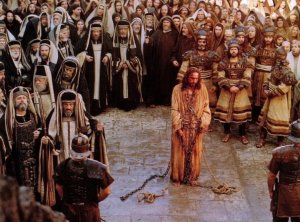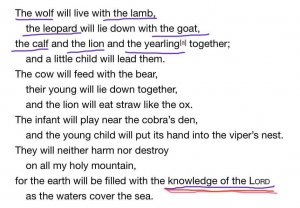- Oct 19, 2019
- 11
- 0
- 31
- Country
- United States
- Faith
- Christian
- Marital Status
- Single
From Isaiah 14:10 - onward, the Israelites seem to be accusing the Lucifer figure of willing to ascend above the terrestrial, into deity, and aspiring to assume God’s domain, while also saying that he will fail, he will die.
All they shall speak and say unto thee, Art thou also become weak as we? art thou become like unto us? Your pomp is brought down to Sheol, And the sound of your stringed instruments; The maggot is spread under you, And worms cover you.’- Isaiah 14:10-11
This line of rhetoric by the Israelites continues with the infamous 14:12, “how art thou fallen”
However, my curiosity rises sharply at 14:29.
Rejoice ye not, whole Palestina, because the rod of him that smote thee is broken: for out of the serpent's root shall come forth a cockatrice, and his fruit shall be a fiery flying serpent. - Isaiah 14:29
Isaiah seems to be speaking to the Israelites and warning them to not rejoice, why? Death, maggots, resurrection?
Furthermore, the serpent’s root is generally considered to be The Tribe of Dan, the rejected tribe, a Cockatrice could easily be called a Phoenix, a symbol of resurrection even before Isaiah was written or perhaps a symbol of paradox, hinting at hybrid elements like that of Man and God in a single entity but most odd is “His offspring will be a fiery flying serpent”, isn’t this considered a symbol of Christ and Hebraic Divinity?
When I read Isaiah 14 specifically, it feels as though I’m reading two different writers, one is mystical and proverbial and the other is completely terrestrial, as though there was an original writer who was saying one thing and someone else who is writing around the other’s work. I have severe issues with things like this in the Bible. Revelation 22:16 has often caused confusion for many laymen of theological or mythological study of the Bible for it’s use of The Morning Star in reference to Jesus as they think it has some correlation with Lucifer but “the root and offspring” also seems to be mirrored both in Isaiah (Lucifer) and Revelation (Jesus).
To understand why I’m giving it a mythological reading I would briefly explain The Garden of Eden.
Elohim (masculine-feminine-plural) creates Adam-Chavah (The Living Man-epithet) and our other character is Nachash (the androgynous-fiery-shining serpent)
Elohim says “eat from every tree but not from The Tree of the The Fruit of The Knowledge of Good and Evil” The Serpent deceives with the truth “you’ll not surely die” and The Livingness (Eve) betrays the Man (Adam).
I don’t extract a commentary on morality from this but rather, The Living Man, who is Jesus, should not really concern himself with what is Good and Evil within the context of the Garden. In short, The First Beast of Revelation 13 is a beast right? He’s evil, he’s the antichrist but Revelation 13 is a direct reference to Hosea 13 where YHWH describes himself and prophesies he will be a beast of almost identical likeness. What if the beasts are the same and this good versus evil thing has been stopping us from understanding.
I form the light, and create darkness: I make peace, and create evil: I the Lord do all these things. - Isaiah 45:7
All they shall speak and say unto thee, Art thou also become weak as we? art thou become like unto us? Your pomp is brought down to Sheol, And the sound of your stringed instruments; The maggot is spread under you, And worms cover you.’- Isaiah 14:10-11
This line of rhetoric by the Israelites continues with the infamous 14:12, “how art thou fallen”
However, my curiosity rises sharply at 14:29.
Rejoice ye not, whole Palestina, because the rod of him that smote thee is broken: for out of the serpent's root shall come forth a cockatrice, and his fruit shall be a fiery flying serpent. - Isaiah 14:29
Isaiah seems to be speaking to the Israelites and warning them to not rejoice, why? Death, maggots, resurrection?
Furthermore, the serpent’s root is generally considered to be The Tribe of Dan, the rejected tribe, a Cockatrice could easily be called a Phoenix, a symbol of resurrection even before Isaiah was written or perhaps a symbol of paradox, hinting at hybrid elements like that of Man and God in a single entity but most odd is “His offspring will be a fiery flying serpent”, isn’t this considered a symbol of Christ and Hebraic Divinity?
When I read Isaiah 14 specifically, it feels as though I’m reading two different writers, one is mystical and proverbial and the other is completely terrestrial, as though there was an original writer who was saying one thing and someone else who is writing around the other’s work. I have severe issues with things like this in the Bible. Revelation 22:16 has often caused confusion for many laymen of theological or mythological study of the Bible for it’s use of The Morning Star in reference to Jesus as they think it has some correlation with Lucifer but “the root and offspring” also seems to be mirrored both in Isaiah (Lucifer) and Revelation (Jesus).
To understand why I’m giving it a mythological reading I would briefly explain The Garden of Eden.
Elohim (masculine-feminine-plural) creates Adam-Chavah (The Living Man-epithet) and our other character is Nachash (the androgynous-fiery-shining serpent)
Elohim says “eat from every tree but not from The Tree of the The Fruit of The Knowledge of Good and Evil” The Serpent deceives with the truth “you’ll not surely die” and The Livingness (Eve) betrays the Man (Adam).
I don’t extract a commentary on morality from this but rather, The Living Man, who is Jesus, should not really concern himself with what is Good and Evil within the context of the Garden. In short, The First Beast of Revelation 13 is a beast right? He’s evil, he’s the antichrist but Revelation 13 is a direct reference to Hosea 13 where YHWH describes himself and prophesies he will be a beast of almost identical likeness. What if the beasts are the same and this good versus evil thing has been stopping us from understanding.
I form the light, and create darkness: I make peace, and create evil: I the Lord do all these things. - Isaiah 45:7



